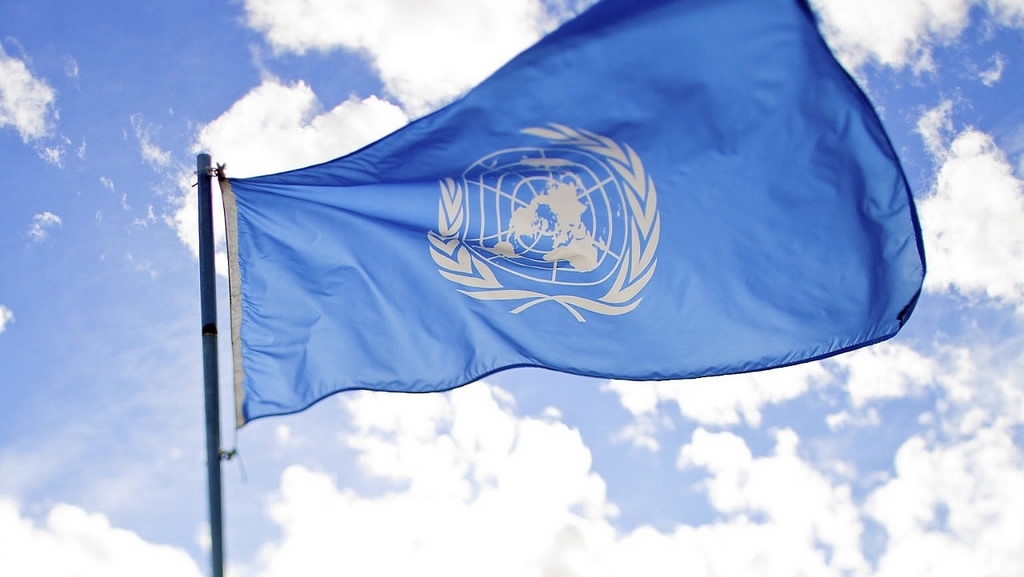
File photo: CGTN
Following the global financial crisis, the international community united around an ambitious agenda to promote the Sustainable Development Goals and the Paris Climate Agenda. This ambition has, however, run in to the reality of a fragile global economy. As advanced economies reverted to austerity measures, incomes stagnated and trade slowed. For many commodity-exporting developing countries, declining prices from the middle of the decade, combined with volatile capital flows, hit their growth prospects hard.
The divergence between development ambition and economic reality has left multilateralism in limbo. The prospects of it recovering momentum have been hampered by the resort to unilateral trade measures in the United States, and the abandoning (by all developed countries) of the Doha Round at the WTO. Meanwhile, the reluctance of advanced countries to turn common and differentiated responsibility for climate change into meaningful financial commitments has been eroding the trust established in Paris. As the last decade ended, the United Nations Conference on Trade and Development warned, absent a course correction, of a "lost decade" ahead.
Two years later the situation is, if anything, even more troubling. In quick succession, the economic fallout from the pandemic, the Ukraine crisis and the rapid tightening of monetary policy in advanced countries to combat inflationary pressures, compounded by intensifying climate shocks, have exposed the vulnerability of many developing countries to external shocks and the lack of global policy coordination to mitigate such shocks. If, as looks increasingly likely, a global recession ensues then there is little hope of meeting the SDGs by 2030.
Getting the SDGs back on track requires countries to revive investment, stimulate productivity growth and boost wages and employment for a virtuous growth circle. But most developing countries can no longer forge such a path on their own. Reforms in the financial sector, including the Bretton Woods Institutions, are therefore urgently needed to make profit-driven financial flows serve the common aspiration of sustainable development. Two aspects require urgent attention.
Financial stability, a quintessential global public good, can only be achieved by states acting cooperatively. The G20 did well in 2009 when responding to the global financial crisis but underperformed during the COVID-19 crisis. The rescue measures taken in 2020 were too limited in terms of coverage, too little in terms of resources and too late in terms of delivery. And even the important decision to allocate $650 billion in new Special Drawing Rights (SDRs) through the IMF failed to extend liquidity support to those developing countries most in need given the arcane way in which those resources are distributed.
Financial regulation remains critical in restricting speculation so as to bolster real economy. Establishing virtuous growth circles requires moving away from the idea that financial markets can be left to deliver the required investment push. In advanced countries, capital formation has been sluggish for decades, with public investment starved of resources while corporate profits, augmented by easy access to credit, are used to buyback shares, acquire other businesses and boost dividend payments, all at the expense of productive investment. In many developing countries, footloose capital has ebbed and flowed over the last decade and a half, squeezing fiscal space and leaving a massive debt overhang without boosting the capital stock. It is clear that a robust international financial environment that serves the real economy will need to give wider support to capital controls, on both inflows and outflows, restrict speculative activities and curtail illicit financial flows and encourage productive investment. It will also need to find ways to scale up long-term financing at affordable rates through the existing system of multilateral and regional development banks.
Global public goods, such as financial stability, require a robust mixture of international cooperation and trust. The Bretton Woods institutions were established on that basis at the end of the Second World War. Their revival will, no doubt, require some serious reflection and rethinking from their main shareholders in the advanced countries. But a catalyst for change could come from developing countries acting together through strengthened South-South cooperation.
The global economic landscape has undergone profound changes since the founding of the institutions of global economic governance in the 1940s. Developing regions now represents over 40 percent of world’s GDP and about 45 percent of exports in goods. In recent years the BRICS and the the Belt and Road Initiative, along with a growing number of regional arrangements have given rise to new financing mechanisms that offer a counterpoint for managing closer economic interdependence.
This rising economic significance provides the political muscle for developing countries to play a more important role in shaping global economic governance.
The Global Development Initiative (GDI), proposed by China in the UN General Assembly, is a concrete example. Drawing on its own development policy experience, China has highlighted 8 priority areas in the GDI including the most urgent, like climate change and poverty alleviation, and the more structural, like industrialization and financing for development. This offers new opportunities for the country’s cooperation with other developing countries.
In our forthcoming Trade and Development Report we show that scaling up South-South cooperation could boost industrial development and job creation in developing countries as well as help mobilize the resources for the energy transition to a greener future. This is not a substitute for heightened multilateral action which remains the only way to ensure the scale of response required to meet our common challenges. But it can demonstrate the tangible benefits of greater solidarity and the sharing of knowledge in search of a better future for all people and the planet.
The author is the Director of Division on Globalization and Development Strategies (DGDS) in the United Nations Conference on Trade and Development (UNCTAD).
The views don't necessarily reflect those of People's Daily.


